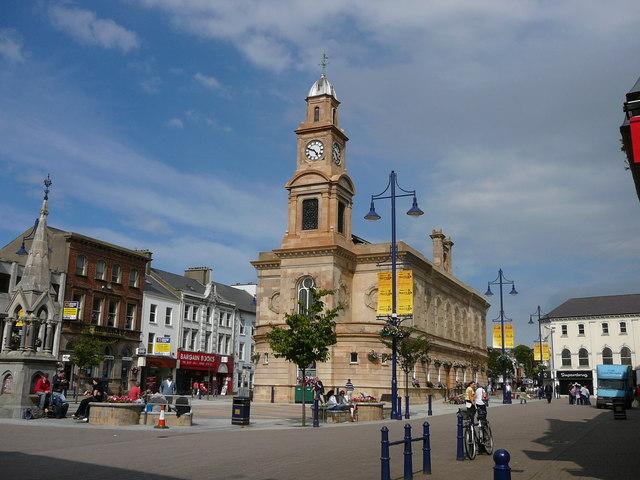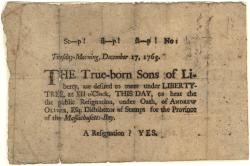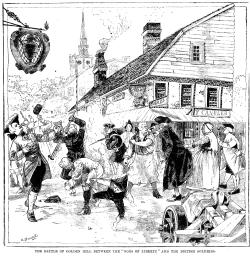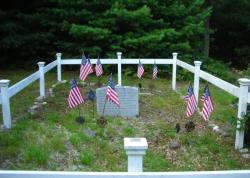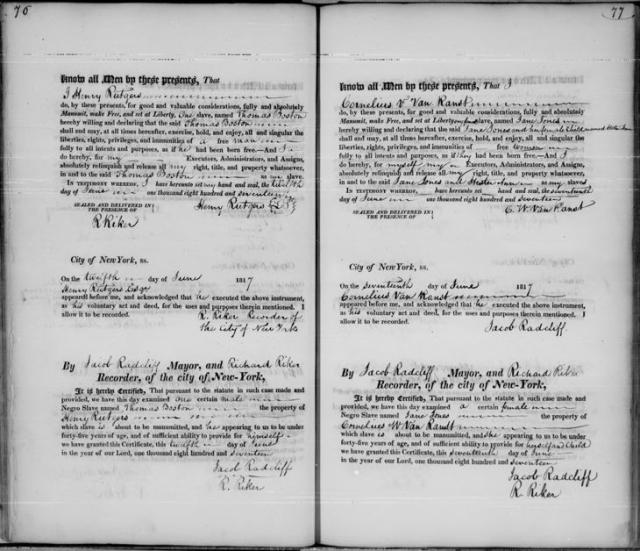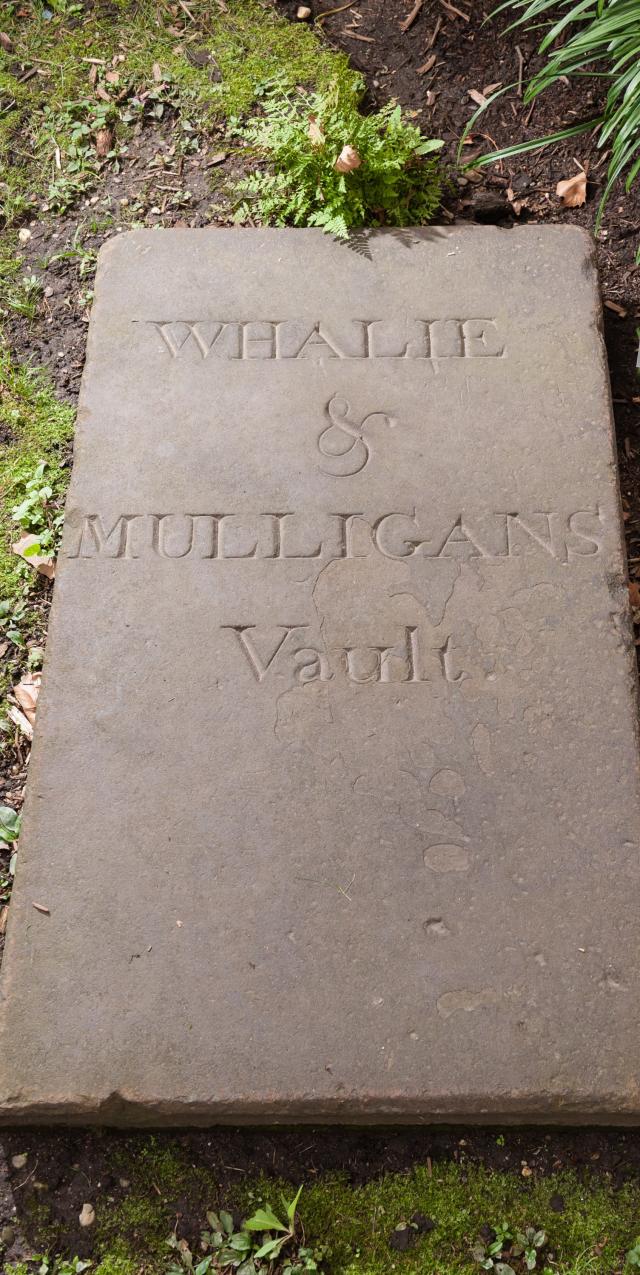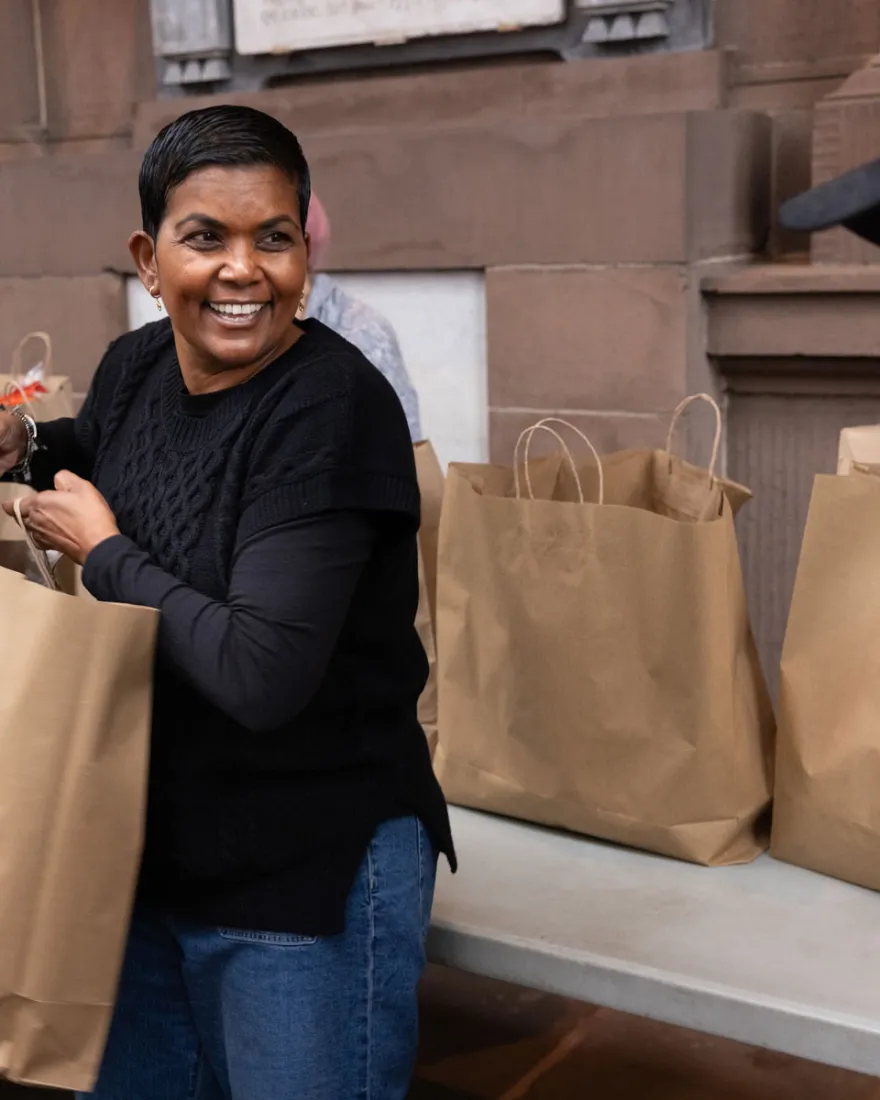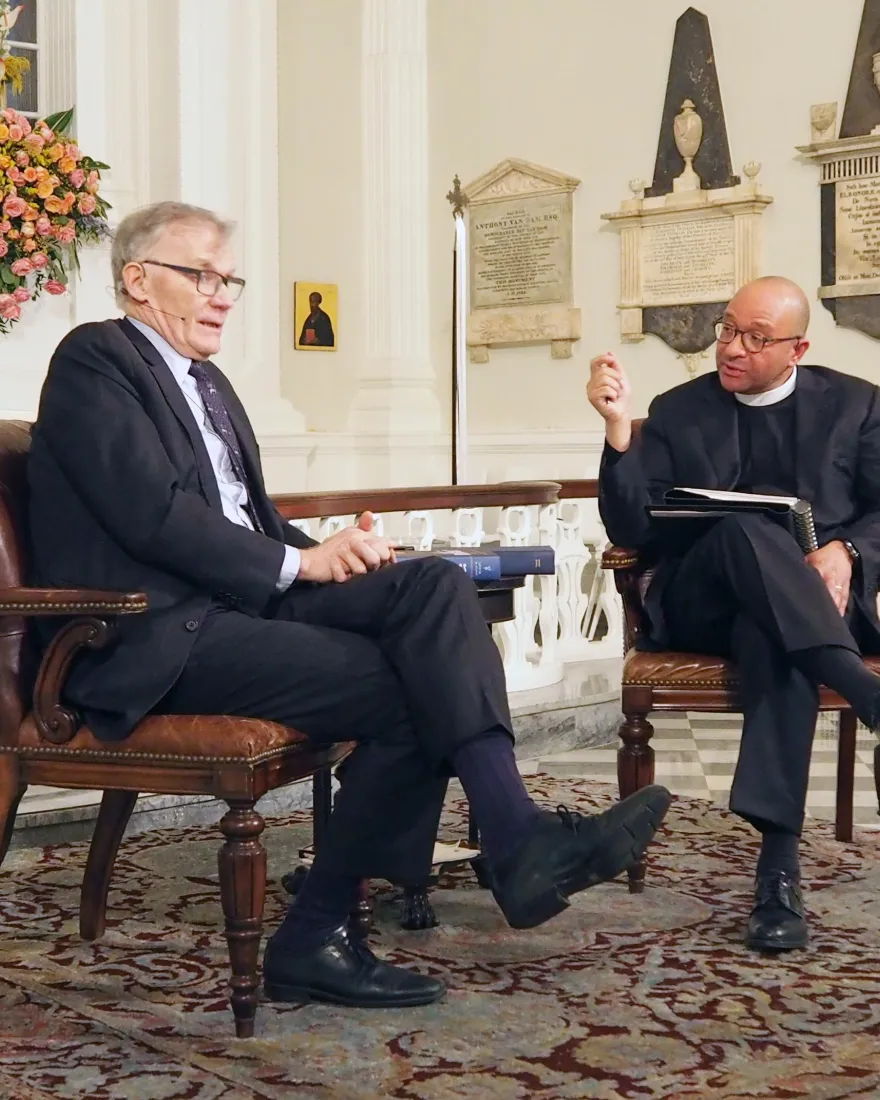Hercules Mulligan and Trinity

Hercules Mulligan was an Irish American tailor and spy during the Revolutionary War, member of the Sons of Liberty and New York Manumission Society, and a Trinity Church vestryman from 1784 to 1786.
Without Mulligan's espionage, George Washington may not have survived the Revolutionary War.
Mulligan was born in Coleraine, Ireland, in 1740, and immigrated to New York with his family in 1746. He attended King’s College, later known as Columbia University. King's College was built on land provided by Trinity Church in 1754. Mulligan married Elizabeth Sanders at Trinity in 1773.
He became friends with Alexander Hamilton not long after Hamilton’s arrival in New York City and Hamilton lived with Mulligan for some time while he also attended King’s College. The two had many late-night political discussions and Mulligan is credited for swaying Hamilton away from British loyalty and towards American independence.
Hercules Mulligan was one of the first colonists to join the Sons of Liberty, a secret organization founded to advance the rights of the citizens of the colonies and to fight against taxation by the British government.
In his role as a tailor, considered a lowly position at the time, he was able to listen in on the conversations between British generals who patronized his business. He was also able to gauge troop movement by the timing of when they picked up their uniforms from his shop. The intelligence gleaned through his business was then reported back to George Washington’s camp in New Jersey by Cato Howe, a man enslaved by Mulligan.
Mulligan’s information, passed on by Howe, is credited with saving the general’s life on two occasions: the first, in 1779, when a British officer revealed a plot to capture Washington. The second incident happened in 1781, when Mulligan’s brother, Hugh Jr., discovered through his import/export business that several hundred British troops were being sent to Connecticut to intercept Washington.
After the Revolutionary War, despite being an enslaver himself, Mulligan became one of the founders of the New York Manumission Society, an organization founded to promote the abolition of slavery, alongside Hamilton and John Jay.
His tailoring business continued to flourish, before his retirement in 1820. George Washington kept Mulligan in mind for clothing even after Washington became President and the capital moved to Philadelphia, authorizing an aide in 1792 to request "some black mole skin, like that of which you made him a pair of breeches when he was in New York."
Hercules Mulligan died in 1825 and is buried in the Sanders vault in Trinity Churchyard alongside his wife and members of her family. Because the footprint of the third and current Trinity Church building is larger than its predecessors, the Sanders vault is now under the church and not visible.
His mother, sister, brother-in-law, son, grandson, and granddaughter are buried in the Whalie vault, also in the churchyard.






